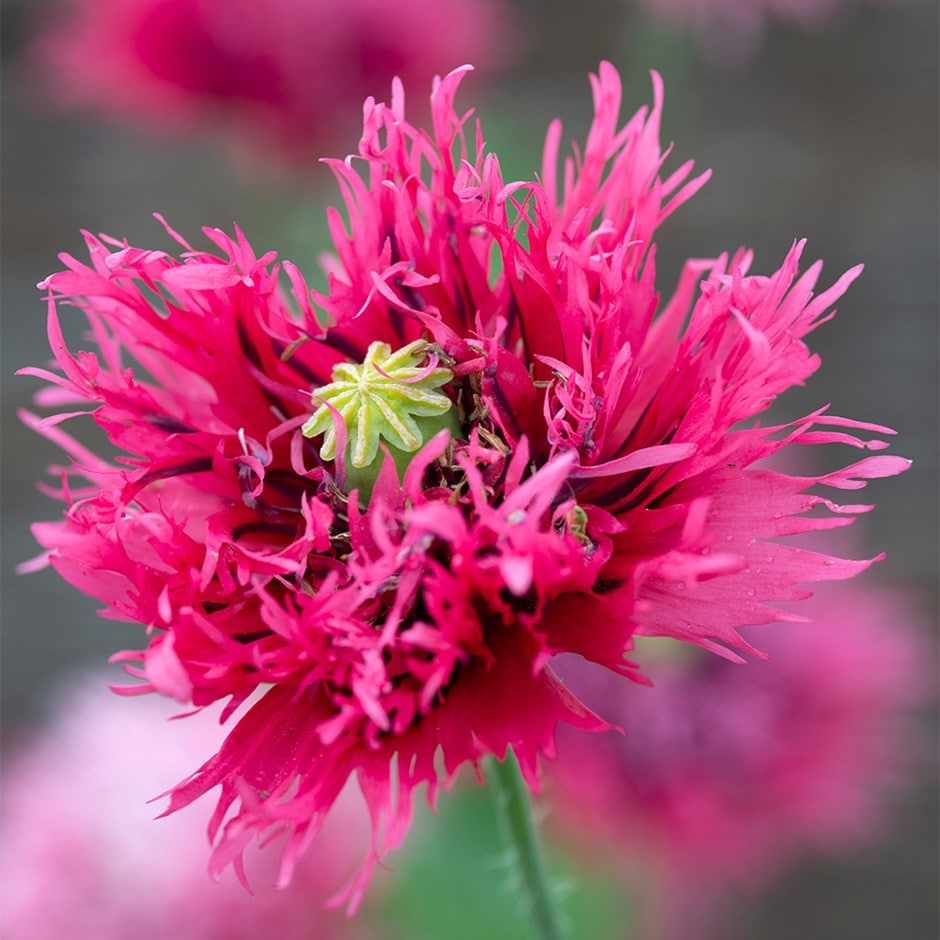Papaver 'Rose Feathers'
poppy
- approx 300 seeds
- £2.24 £2.49
- available to order from spring
Delivery options
- Seed Packets (only) £2.99
- Position: full sun
- Soil: moderately fertile, moist, well-drained soil
- Rate of growth: average
- Flowering period: June to August
- Hardiness: hardy annual
Large, double flowers with ruffled, feathery petals in soft pink and rose shades add striking texture and colour to summer borders. The blooms stand tall above blue-green foliage and are followed by decorative seed pods that can be dried for long-lasting use in floral arrangements.
Papaver 'Rose Feathers' is easy to grow from seed and will often self-seed to return in future years, making it a reliable choice for cottage gardens and informal planting schemes. Flowers can reach up to 10cm (4in) across, creating bold impact in mixed borders and cutting gardens.
Sow in succession for a longer display, and deadhead regularly to encourage more blooms. This cultivated variety thrives in full sun and well-drained soil, providing both ornamental flowers and unique seed heads for fresh or dried bouquets.
Papaver 'Rose Feathers' is easy to grow from seed and will often self-seed to return in future years, making it a reliable choice for cottage gardens and informal planting schemes. Flowers can reach up to 10cm (4in) across, creating bold impact in mixed borders and cutting gardens.
Sow in succession for a longer display, and deadhead regularly to encourage more blooms. This cultivated variety thrives in full sun and well-drained soil, providing both ornamental flowers and unique seed heads for fresh or dried bouquets.
These poppies tend to resent root disturbance, so plant or sow them in situ. If you don't want them to self-seed, then remove the spent flowerheads after the petals fall. If however you'd like another batch of self-sown seedlings in subsequent years, leave the seedheads intact, and when the seed has ripened, give them a gentle shake to spread their contents. When watering, avoid the 'little and often' approach, but when the soil becomes dry, water thoroughly so it can really soak in.
Sow shallowly, directly into a well prepared bed in spring, or (for an earlier display the following year) late summer to early autumn. Water well and as the seedlings appear, thin them out to 30cm (12in) intervals keeping just the healthiest and most robust ones to develop.
- Humans/Pets: Harmful if eaten

